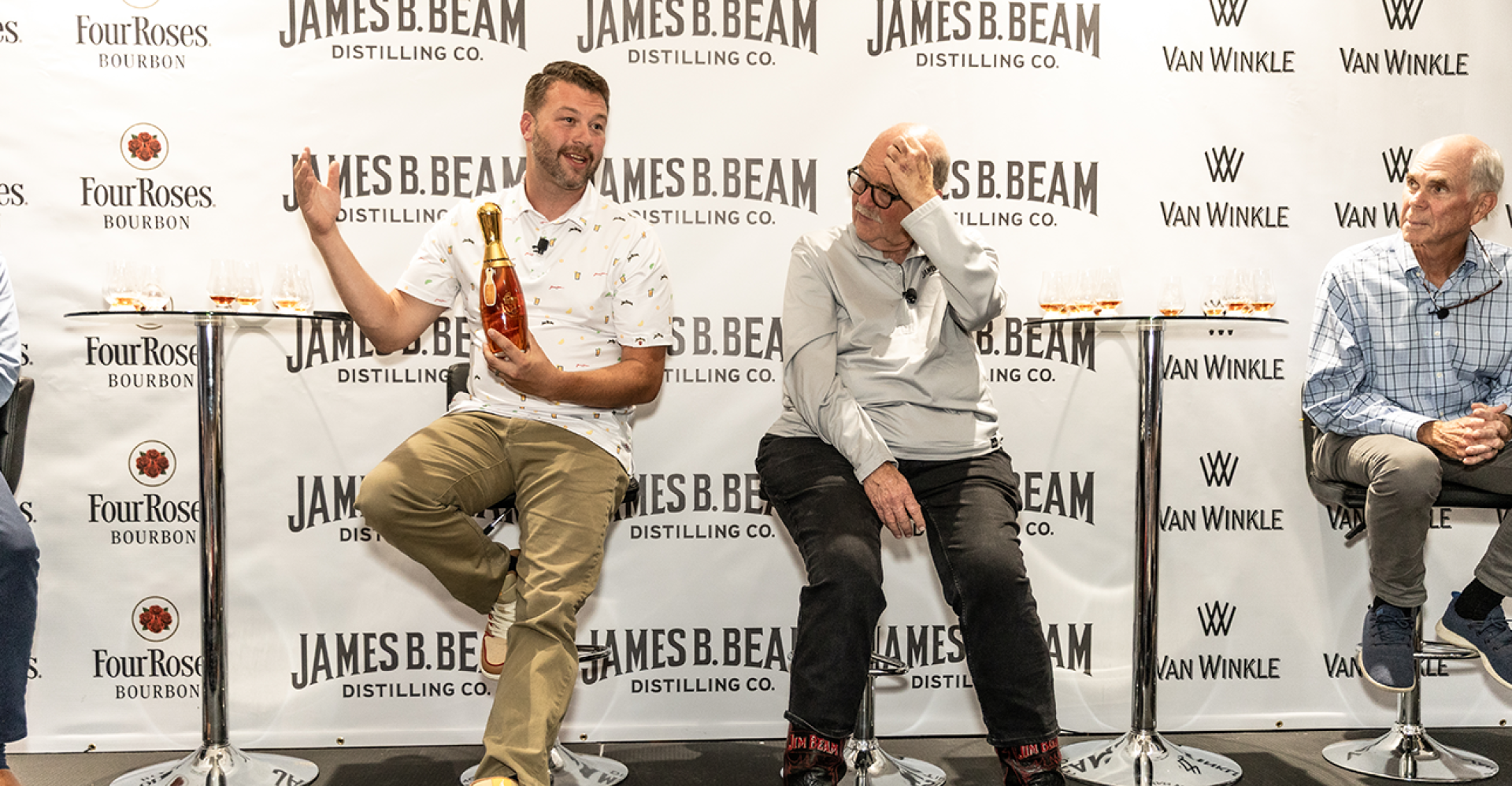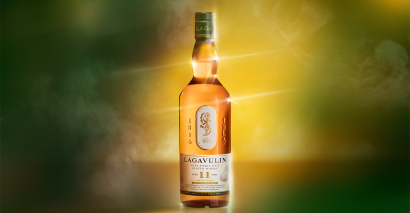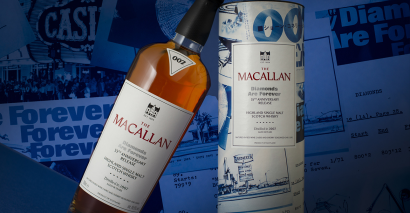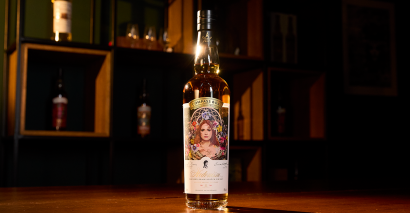
Freddie and Fred Noe of Beam and Julian Van Winkle III were among the bourbon stars who swapped stories at the Bourbon Icons Dinner.
Inside the Bourbon Icons Dinner: Van Winkle, Noe, and Other Industry Legends Share Wild Stories
At the Kentucky Bourbon Festival's exclusive gathering, industry legends including Julian Van Winkle III, Fred Noe, and Marci Palatella shared candid stories about building their brands from the ground up
September 17, 2025 –––––– Sean Evans
On a mild Kentucky evening in Bardstown, 100 guests gathered in an unlikely venue: Fred Noe’s backyard. The setting was intimate, fitting for an industry built on generations of family legacies and neighborly competition. Gathered for the Bourbon Icons Dinner, part of the Kentucky Bourbon Festival, the night brought together the biggest names in American whiskey for an evening of candid storytelling.
Over five courses, bourbon royalty sat side by side on a small stage: Julian and Preston Van Winkle from Old Rip Van Winkle, Fred and Freddie Noe of Jim Beam, Rob Samuels of Maker's Mark, Four Roses master distiller Brent Elliott, Andrea Wilson, master distiller at Michter's, and Marci Palatella, owner of Preservation Distillery.
Andy Treinen, president and CEO of the Frazier History Museum, the emcee for the evening, drew out sentimental—often hilarious—stories behind the brands that shaped America’s spirit. Here are the night’s best quotes.
Julian Van Winkle III on whether his family understood the level of grinding required in the ’80s:
“My kids sure do. They were down [at his Commonwealth Distillery] in Lawrenceburg, Kentucky, when they were small, helping me on the bottling line on the weekends. And that was not a place for kids. There were mice and raccoons. Every time I’d go in the damn elevator, there’d be raccoon poop in there. But this was survival.”
Andrea Wilson on the relaunch of Michter’s:
“Michter’s started in 1753, pre-U.S. Constitution. It closed down during Prohibition, later reopened by a gentleman who renamed the brand after his two sons, Michael and Peter—the joining of their two names makes Michter’s. It closed down in 1989 in Pennsylvania, and the family that privately owns it today paid $245 for a trademark application to acquire the name. They had to rebuild this brand from scratch. And the first strategic decision was to bring the brand to Kentucky.”
Marci Palatella on personally sketching and creating the iconic Very Old St. Nick character:
“In the ’80s, I’d been going around to various distributors, and not selling much. ‘What else do you have?’ they kept saying. I told them I’d be back. I had a brown paper bag on a flight and I started drawing, thinking a holiday product would be good. But I better not make the label red and green, because there'll be a closeout if it doesn't work. I drew [the St. Nick character] in pen and sent it to a graphic artist, and we made this package. For the whiskey, I wanted something really different, cask strength bourbon. My husband, in the industry, gave me a little piece of paper with one name: Van Winkle. I got a hold of Julian, and he thought it was a really bad idea but said, ‘Listen, I'll take your crazy St. Nick Christmas package… if you'll distribute my two Old Rip and Old Rip Van Winkle.’ And that was it.”
Fred Noe on trying to grow the category decades ago:
“Twenty-five years ago, there wouldn't be 15 people sitting there, listening to us talk. We’d go out to hotel lobbies, begging people to come into a tasting. We had rooms set up for 50 people and 10 would show up. You just had to go and grab people, ‘cause you don't want to waste all the liquor you poured. Now? You gotta lock the door 30 minutes before you start.”
Rob Samuels on Bardstown’s legendary Whiskey Row:
“The Samuels family actually lived next door [to Fred Noe] for 70 years. Third Street was Whiskey Row for decades because five or six distilling families from the region, friendly competitors, were neighbors. My great-grandfather, who owned the T.W. Samuels distillery, was mayor of Bardstown at the time, and he used city funds to build a sidewalk between his house and Fred’s house. We have the documentation from the city when he was challenged for spending city funds. He said, ‘Well, I get better advice from Jim Beam than I do from the city council.’”
Julian Van Winkle III on Pappy’s iconic quote, “We make fine bourbon at a profit if we can, at a loss if we must, but always fine bourbon.”:
“First, I have to thank Andrea Mitchell because she helped me get the original sign [with this quote] off the gate at Stitzel-Weller. It was under the cloak of darkness, but we did get it out. Basically, it means what it says. We take quality way over profit. There have been a lot of brands where the accountants get into the business, saying we can make this whiskey less expensively and the stockholders will just love it. Well, my son Preston and I are two of the six stockholders, and it's a no-brainer to us. Keep up the quality, because people notice shit like when quality goes down. Don’t let profit get in the way of making a good product.”
![]()
Fred Noe on life on the road:
“We were all out [travelling] together: Jimmy Russell, Elmer T. Lee, and Julian [Van Winkle]. Once, we’re all in a Chicago bar, Mike Miller’s place, Delilah’s. The place is full, and we’re in there fighting the scotch [marketing] guys; everybody wanted to taste the scotch—no one gave a shit about what we were making. Those scotch guys pulled out some bottles—they were real proud of it—and we knocked ‘em back like we do bourbon. ‘Whoa, you gotta slow down!’ they said. Wrong.”
Rob Samuels on Pappy Van Winkle:
“My grandfather, Bill, co-founder of Maker’s Mark, and Pappy were the closest of friends. My dad claims—and I believe him—that Pappy actually gave my dad his first ever sip of bourbon when he was 12.”
Palatella on generosity and camaraderie within the industry:
“Some 25 years ago, I ran into Fred Noe, and he says, ‘I heard you just bought property here. Here's my card. Give me a call if you need anything.’ And I thought he's such a nice man. I ran into him a year later, and he said, ‘You never called me.’ I said, ‘Fred, we have had so many problems, but they’re always at night.’ He said, ‘That was my home number.’ That is this industry. We had another problem with the bottling line and within 30 minutes, five people from five different distilleries heard about it and showed up to fix it.”




